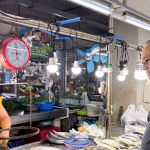- July 30, 2012
- allanreyes
Sustainability is an essential aspect of urban development, and Quezon City has taken a proactive step in promoting environmental responsibility within its educational institutions. Resolution SP-5545, S-2012 was passed to encourage the Department of Education (DepEd) to adopt alternative or eco-friendly materials for school furniture in all public elementary and high schools in the city. This initiative aligns with Quezon City’s green initiatives, emphasizing the importance of sustainability in education.
Objective of the Resolution
The primary objective of Resolution SP-5545, S-2012 is to integrate environmentally friendly practices within the education sector. The resolution seeks to:
- Reduce the reliance on traditional materials that contribute to deforestation and pollution.
- Encourage the use of recycled, sustainable, and biodegradable materials in school furniture production.
- Promote environmental awareness among students, teachers, and school administrators.
- Support local manufacturers that specialize in sustainable furniture.
Key Provisions of Resolution SP-5545, S-2012
Resolution SP-5545, S-2012 outlines several key provisions to ensure the successful implementation of its objectives:
- Request for DepEd’s Support – DepEd is encouraged to consider using alternative materials for school furniture to minimize environmental impact.
- Identification of Sustainable Materials – The resolution promotes the use of materials such as bamboo, recycled plastic, and repurposed wood for school desks and chairs.
- Collaboration with Environmental Agencies – Schools and local government units are urged to work with environmental groups to source and implement sustainable furniture.
- Awareness and Education Campaigns – Students and educators are encouraged to participate in initiatives that raise awareness about the benefits of using eco-friendly materials.
Expected Impact of the Resolution
The implementation of Resolution SP-5545, S-2012 is expected to yield several positive outcomes:
- Environmental Conservation – By reducing dependence on traditional wood-based furniture, schools can contribute to forest preservation and waste reduction.
- Economic Benefits – Encouraging local sustainable businesses will support economic growth while reducing the cost of imported furniture.
- Health and Safety Improvements – Eco-friendly furniture is often free from harmful chemicals, making school environments safer for children.
- Educational Value – The initiative fosters a culture of sustainability, teaching students the importance of environmental stewardship from an early age.
Conclusion
Resolution SP-5545, S-2012 serves as a crucial step towards making Quezon City’s public schools more environmentally sustainable. By urging DepEd to adopt alternative and eco-friendly materials for school furniture, the resolution not only supports the city’s green initiatives but also promotes a culture of sustainability within the educational system. As this policy takes effect, it sets a valuable precedent for other cities to follow, ensuring a greener future for the next generation.
For more details, visit:
Quezon City Council Website
allanreyes.ph



